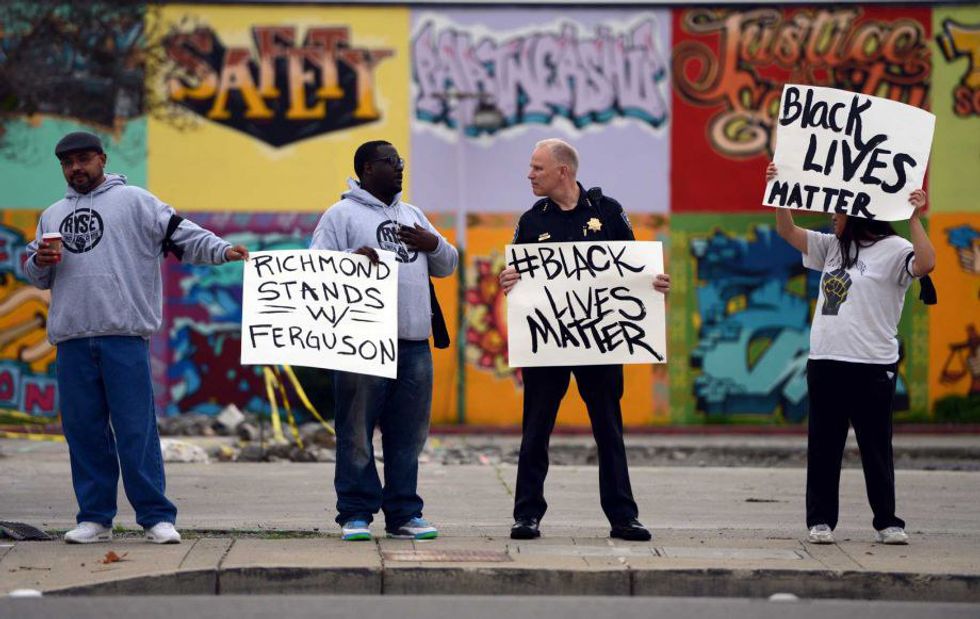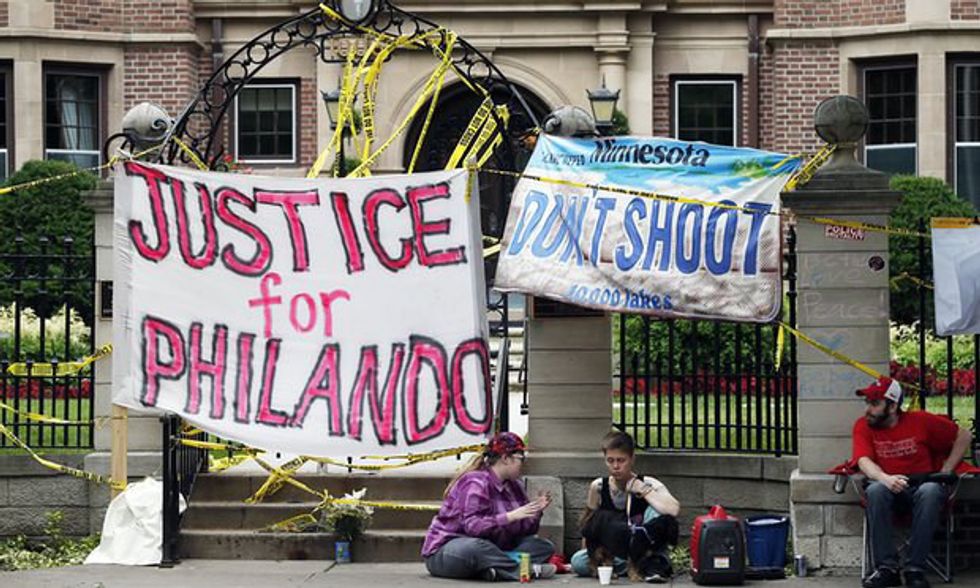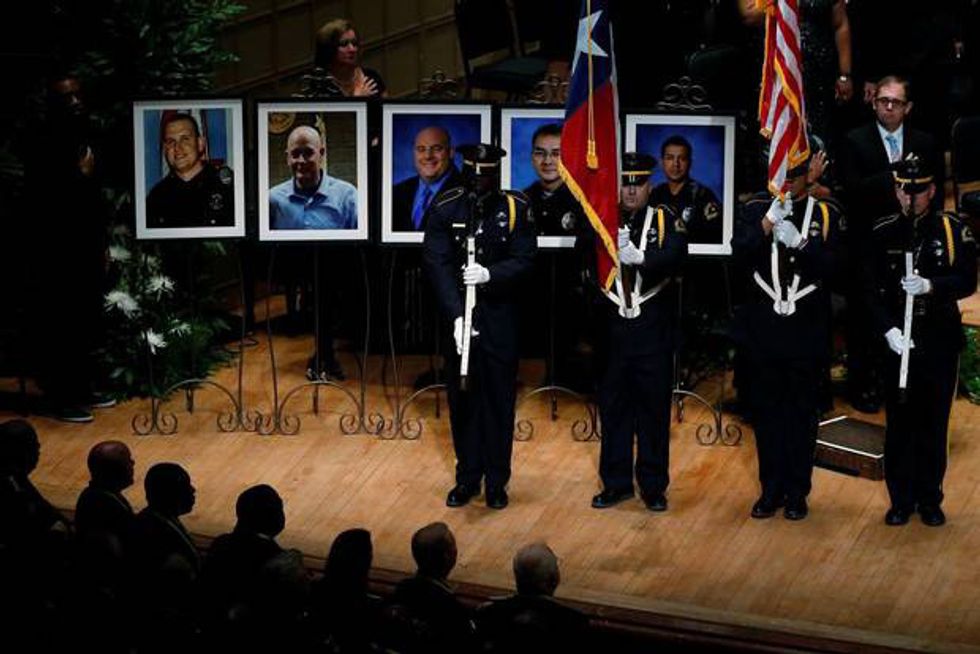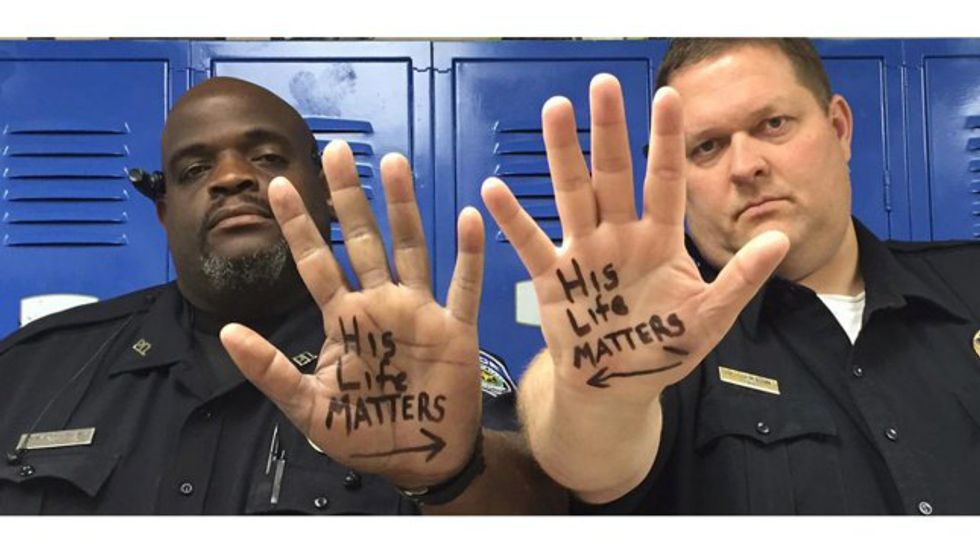“To Serve, Protect and Defend the People While Preserving the Rights and Dignity of All,” is the vision of the New York State Police Department founded in 1917.
It is apparent in recent tragedies that some police officers in the United States fail this vision when lacking to abide by the duty of serving, protecting and defending the people. But it is wrongfully so to assume that the injustice of one or more police officers leads to injustice with them all.
Dangerous threats against police officers and ugly words are bombarding the internet. Negative commentary fuels those already angered by the lack of proper judgment and wrongful behavior of the police officers responsible for the deaths of black citizens. The movement," Black Lives Matter," instead of being seen for what it is—people protesting in order to seek equal respect from police officers and justice for those who have been killed at the hands of the police—it is being referred to by some as an “Anti-Police Protest."
With emotions running high due to these recent events, it is imperative that we do not use these incidents to simply label an entire police force based on other officers' bad judgment and unjustified actions while on duty as being corrupt. Instead, this is an opportunity to educate ourselves on understanding the system and finding out what needs to be changed in order to avoid more people of color’s names becoming hashtags.
Safety, integrity, leadership, service, continuous improvement and learning, are the five core values of the New York State police department. These values are to be expressed throughout the police force by those who have graduated from the Police Academy by undergoing intensive training through classroom settings and real life scenarios. During these real life scenarios, they are taught how to handle potential shooter situations, how to deal with someone who is not willing to comply with law enforcement, and other tactics while on duty.
Despite the intensive training, not all officers handle situations the same, but that is because each situation is different from the other. Each encounter police engage in with whom they are questioning has potential to escalate quickly if not handled properly. The truth is that when it comes to dealing with a person who has a weapon, whether they are black, Hispanic, or white, the officer cannot read that person’s mind when it comes to what they may or may not do with their weapon. Decisions based upon judgement of the situation need to be made within seconds in order to assure the officer and those who are nearby are safe.
Was the death of Philando Castile in Minnesota justified? By all means, no. Once the officer was aware that Castile had a weapon he should have ordered Castile to put his hands where he could see them, not ask him for his ID. An ID could have been taken from Castile once he was cuffed by the officer. Castile was never officially under arrest so it cannot be said that he was resisting arrest either, even if he is a potential “robbery suspect” the death of Castile could have been avoided had that officer made better judgement under the circumstances.
At the end of the night, an officer should make it home to his or her family and loved ones while having represented the law and training he or she learned while in the Police Academy. Instead, we are seeing black citizens' lives being taken too soon from police officers. Due to the anger ignited by the death of these black citizens at the hands of some police officers, we are also seeing police officers being killed while on duty.
Just two weeks ago in Dallas, during an Anti-Police Brutality Protest, five officers were killed by a military veteran who had served in Afghanistan, Micah Johnson. It has been stated that Johnson’s intention during the shooting was to “kill white people, especially white officers.”
The names of those officers Johnson killed are Lorne Ahrens, Michael Krol, Michael J. Smith, Brent Thompson and Patrick Zamarripa. These were not just police officers though, they were husbands, fathers, sons, loved ones. Just like those who have been killed at the hands of a police officer are husbands, fathers, sons, loved ones. There is no justified reasoning for murder on either of these parties account.
Merri McGregor, a 39-year-old retired Detroit police officer, took to Facebook her opinions about the two black men who died in police shootings in Louisiana and Minnesota, the five cops killed in Dallas, and the two bailiffs dead in Berrien County. She said what everyone needs to understand when it comes to police officers.
"Are cops perfect? No. Are there bad cops? Yes. But please...understand that the vast majority of police are good, loving, well-intentioned family people. They have husbands and wives and children and parents and pets and cousins and mortgages and electric bills and lawns that need cutting, just like you. They have hearts and consciences. They aren't robots, they're not machines and they just want to help keep the wolves away from the sheep. I know there's people who don't deserve to wear the badge but they're so very few and far between."
When someone dials 9-1-1 in desperation, and the first responder appears on the scene, fear is shared between both parties—make no mistake about that. But maybe, we can all feel a little bit of peace knowing that "To Serve, Protect and Defend the People While Preserving the Rights and Dignity of All," is understood by all the lives that matter.























